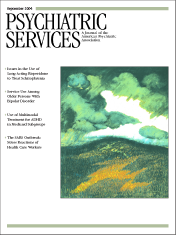Rehab Rounds: Cultural Adaptation of the Basic Conversational Skills Module for a Chinese Population
Abstract
Introduction by the column editors: Persons with schizophrenia experience numerous deficits in their daily lives, particularly in the area of social competence. Social skills training is an evidence-based element of a comprehensive approach to the rehabilitation of persons with serious mental illness (1). The basic conversational skills module, or curriculum, is one in a series of social and independent living skills modules developed to overcome the social deficits of individuals with schizophrenia (2). It has been translated into a dozen languages and used in numerous countries with demonstrated efficacy for improving knowledge and performance of conversation skills and enhancing social functioning of persons with schizophrenia (3). Chinese individuals with schizophrenia have limited access to empirically validated methods for improving their social skills (4). Although the process of developing interpersonal relationships in Western and Asian societies is probably more similar than different, the adaptation of programs developed in the United States to the needs of Chinese persons requires careful consideration of cultural and linguistic issues. The authors of this month's column describe the process of translating and culturally adapting the basic conversational skills module for use in a Chinese population and provide preliminary evidence of the module's beneficial effects on the social competence, self-esteem, and personal well-being of persons with schizophrenia in Hong Kong.



